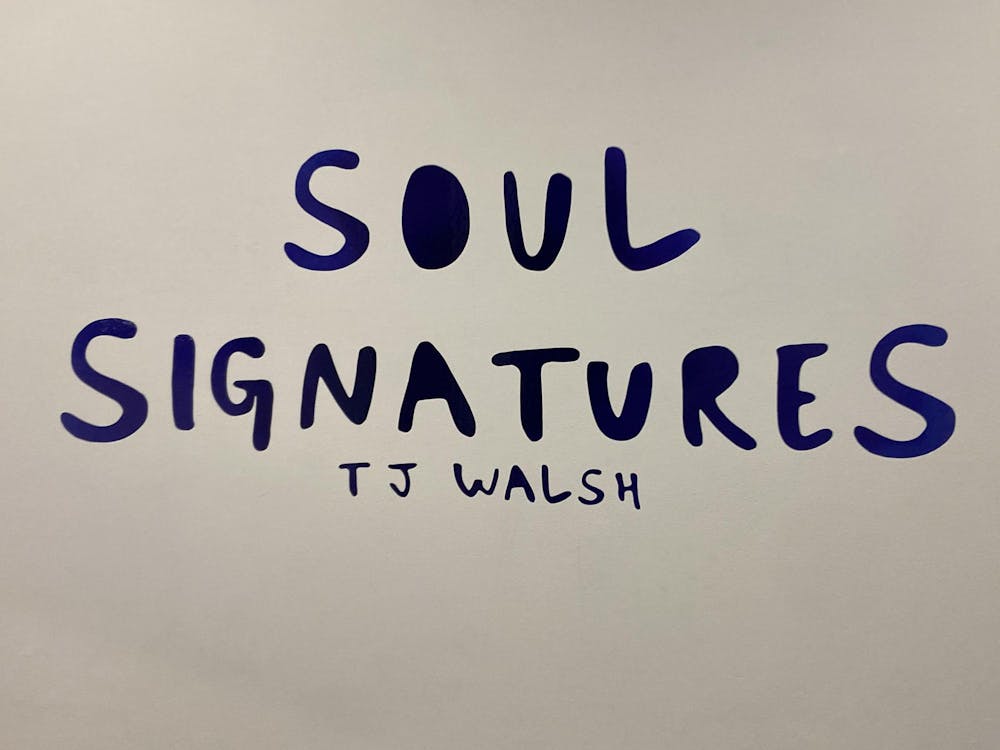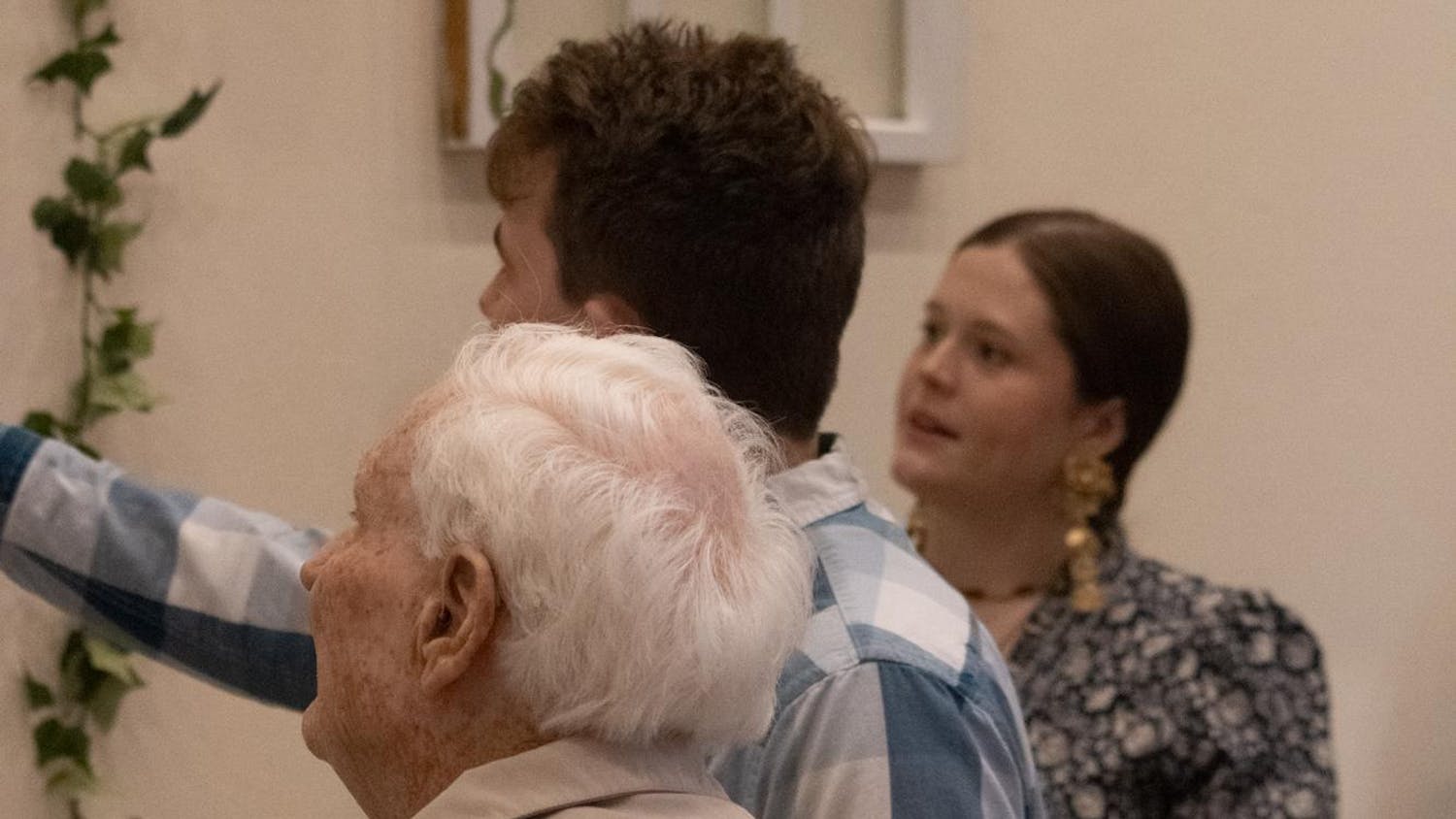Could art, faith, and professional therapy collide in just one painting?
In Philadelphia artist T.J. Walsh's “Soul Signatures” exhibition, which can be found in Taylor’s Metcalf Gallery, students and faculty are able to see this dynamic collision.
Walsh’s exhibition includes over a dozen abstract paintings on both canvas and paper. His process for creating the display was a direct result of his other passion: working as a therapist for ten years.
Sessions with clients often leave him with a heaviness” and a lot of emotional residue, Walsh said.
Fortunately, the counseling office is not Walsh’s only outlet. He has found deep reprieve and beauty during his time in the studio.
By channeling his emotions into art, Walsh created “Soul Signatures,” to be a powerful display that would allow people to think deeply and consider their own emotions and reactions to abstract art.
Walsh hopes that his work will continue to inspire and drive students to deeper artistic understanding, particularly as they view the paintings.
Awareness of the artistic excellence of Walsh’s “Soul Signatures” has spread throughout Taylor’s student body. Mantha Brownson, the student director of the Metcalf Gallery, has been directly inspired by the paintings.
“I love the pieces and their abstract-ness,” Brownson said. “We were [also] able to meet with the artist and have a question and answer with him, which was really amazing. I find the process to be so amazing– that he’s an artist first and a therapist second.”
Part of Brownson’s responsibility as student director is to set up the exhibition selections, enabling her to have first-hand interaction with the pieces themselves.
She holds each painting in the collection in high regard.
“I find the pieces to be very inspiring,” she said. “ [Walsh] doesn’t like to influence people’s opinions…he wants the viewer to come into it and see what they see… It lets the viewer and their predispositions take over.”
While abstraction can be confusing, as has been observed by several students in Art and Life classes who viewed the exhibition. It can lead the viewer to process new emotions or admire a different way to do art.
Abstract art bears a great burden of responsibility to evoke emotions and engage its viewers, one that T.J. Walsh has embraced.
As Pablo Picasso once said, “Art washes away from the soul the dust of everyday life.”
It is the hope of T.J. Walsh that when students at Taylor see his paintings, their souls may be refreshed. Even in the monotony of everyday life, he desires that they might see his work and have the courage to fully live again.





